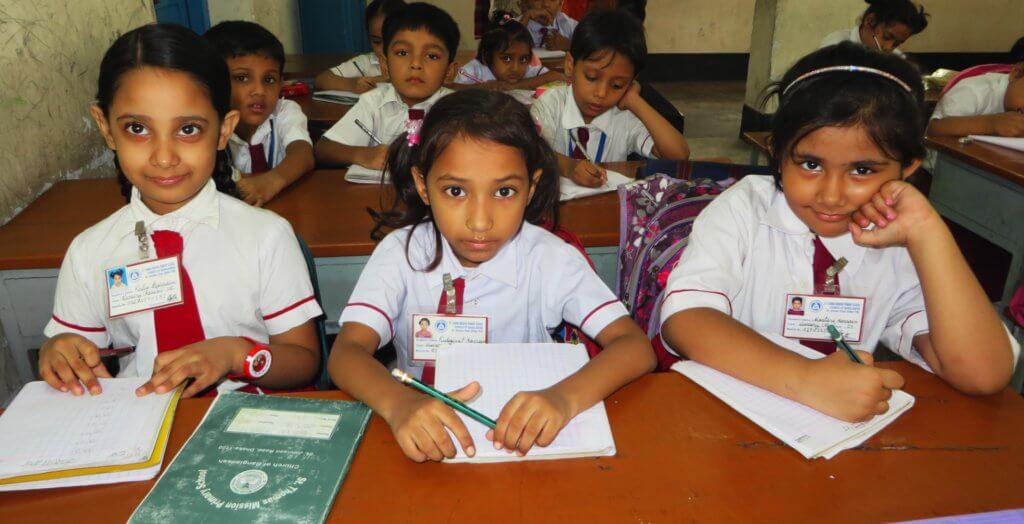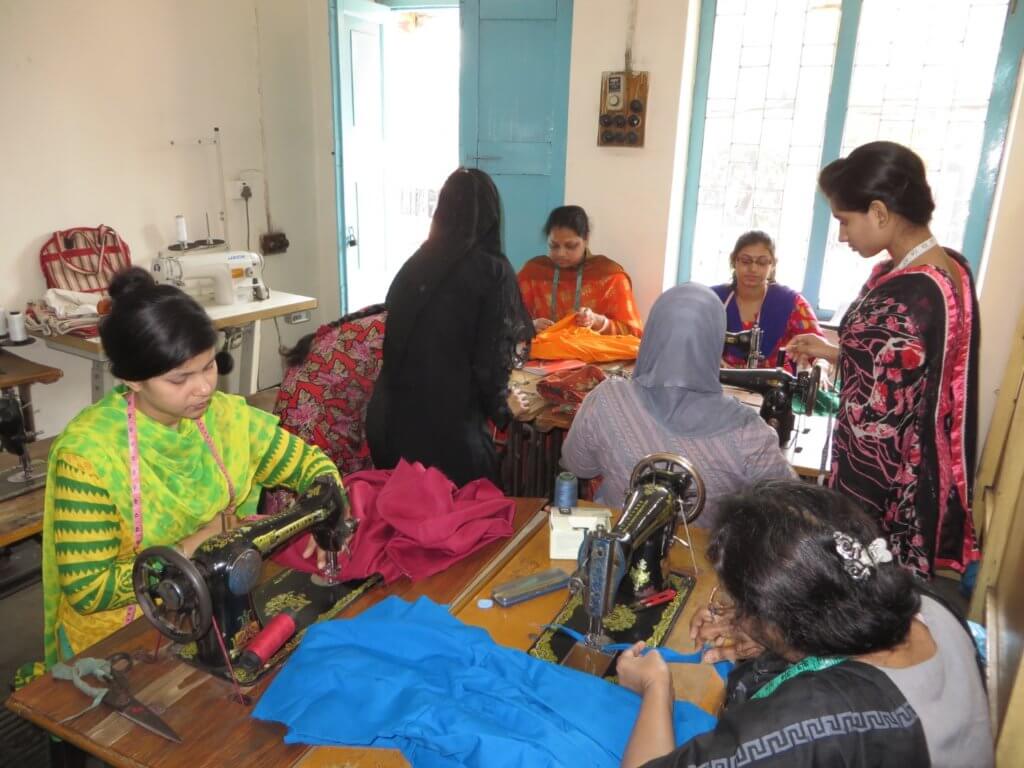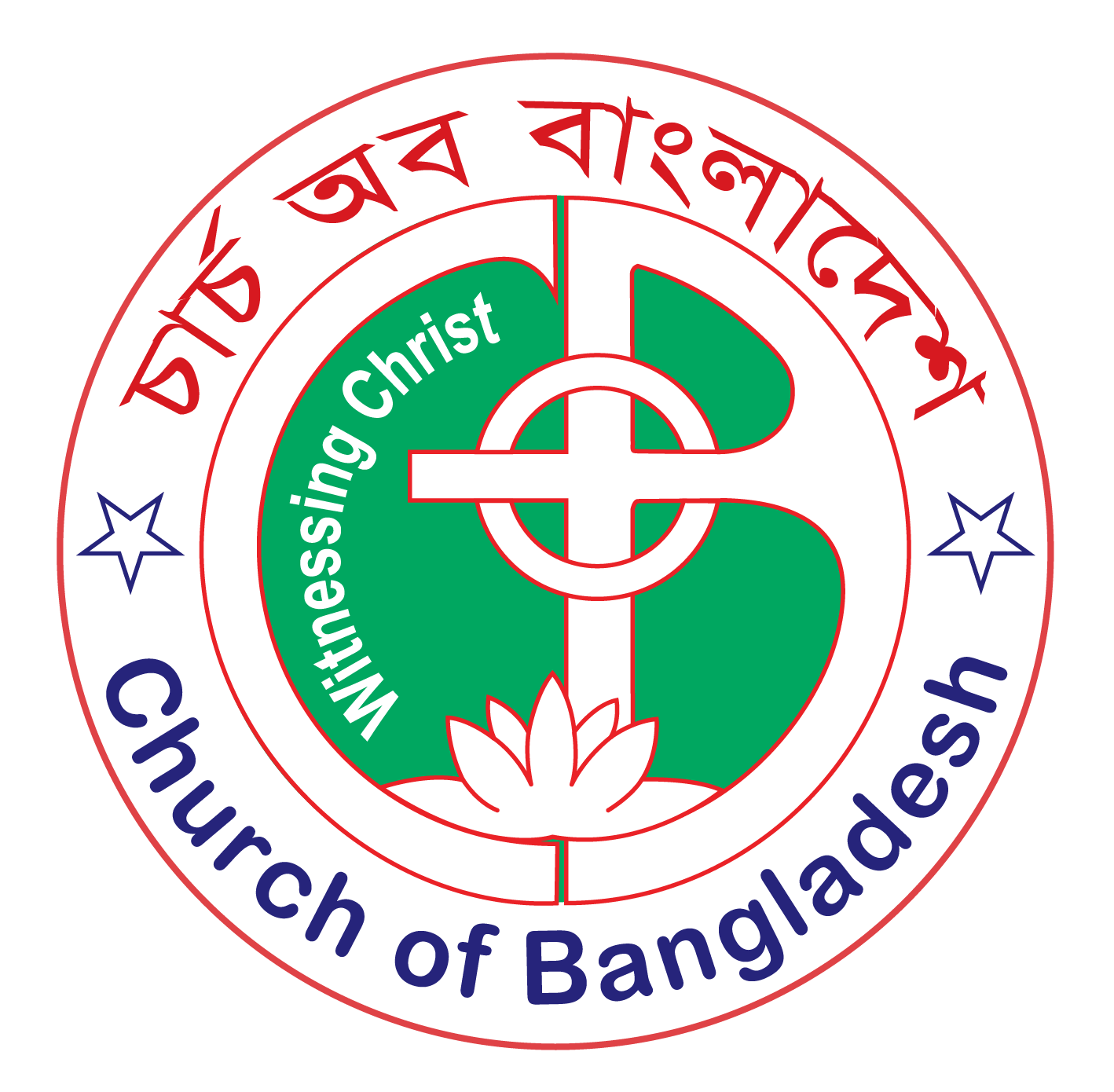
The Church of Bangladesh has been involved in caring for and developing opportunities for children for over 100 years. The missionaries they had established most of those schools in different part of the working area of the Church of Bangladesh. Since education is the backbone of any nation, so thought of creating The Church of Bangladesh has been involved in caring for and developing opportunities for children for over 100 years. The missionaries established most of those schools in different parts of the working area of the Church of Bangladesh. Since education is the backbone of any nation, the Church created opportunities for the underprivileged children living in remote villages and to witness Christ Jesus among the new believers in those days. Since then the Church of Bangladesh, through this education programme, has been serving children of all faiths throughout the country. Thus the COB has been serving the nation to meet the Sustainable Development Goals in regards to quality education despite many challenges. There are many church leaders, community leaders and general people who have benefited through this remarkable education programme. The CoB has some high schools and primary schools which are among the renowned and famous education institutions in Bangladesh. Through this education programme, we not only offer students of all faiths to study in the schools but also offer many Muslims and Hindus the opportunity to join the teaching staff. Thus the COB has been working for the peace, harmony of the country and to love and serve humanity.
Overview
The Church of Bangladesh has been implementing an education programme since its beginning prioritising rural poor children who have limited access to government or other private education facilities. Currently the Church of Bangladesh education programme is running 35 primary schools, 3 junior high schools, and 6 high schools in 7 deaneries and 1 city pastorate with a total of 9,864 students and 310 staff.
Vision
Education for all for the fullness of life and society.
Mission
To ensure a holistic and quality education in a congenial environment of learning and growing with joy and wisdom.
Technical School and Craft Centre
The general aim of the programme is to provide the poor, underprivileged and less educated young people with technical, handicraft, craft or sewing training, so that they may become resourceful through a process of transformation. These centres are situated in Jessore and Rajshahi.
The Nazareth Trade Centre, Savar.
The Nazareth Centre was set up in 1985. This centre will be shifted to Jessore in 2022, to the CCTS site. The prime objective of the institution is to provide skill development training for underprivileged youth, together with a non-formal education on socio-cultural life, so that they may be able to contribute to the upkeep of their families, as well as to society for its socio-economic development. With this aim in mind, the institution has maintained its efforts to keep pace with the increased demand for skilled manpower in the improving socio-economic condition of our society. We continue to work to improve the quality of training and service of this Centre.
The Nazareth Centre provides training in the following trades:
a) Carpentry, b) Tailoring, c) Machinist/Auto-Mobile (welding is added as an extra subject), d) Electrical.
Each course is for a 2 year period.
Unemployment is a great problem for vulnerable women and girls. To develop their knowledge, attitude and skills the church runs a sewing training centre in Dhaka. This is for women and girls who are from poor families of the slums, who do not attend school or have dropped out from school.
Rangdhanu Sewing Training Centre in Dhaka adjacent to St. Thomas’ Cathedral

Unemployment is a great problem for vulnerable women and girls. To develop their knowledge, attitude and skills the church runs a sewing training centre in Dhaka. This is for women and girls who are from poor families of the slums, who do not attend school or have dropped out from school.
At the centre they learn to cut and sew material by hand and machine in order to make dresses. They also learn embroidery with different designs. Every day there is a morning and afternoon class, and the course lasts 6 months. On average there are 15 trainees per course. After completion of the training most of them work at home, while some find employment in the garment factories and some get married.
Nabokoli Craft Centre, Rajshahi.
Nabokoli Craft Centre is for the poor and underprivileged girls in the community. This centre was started in 1995.
The girls receive training in Tailoring, Knitting, Cloth Decoration and Block Batik. NCC provides certificates of training completion to 20-30 girls each year. In the last two years, products made by the trainees have been exported to different parts of the UK. Furthermore, we encourage the beneficiaries of every project to produce quality goods so these can be sold and the beneficiaries could earn for their livelihoods. Recently NCC added a Beauty parlor to train the girls for the modern profession with the help of CMD Germany.
